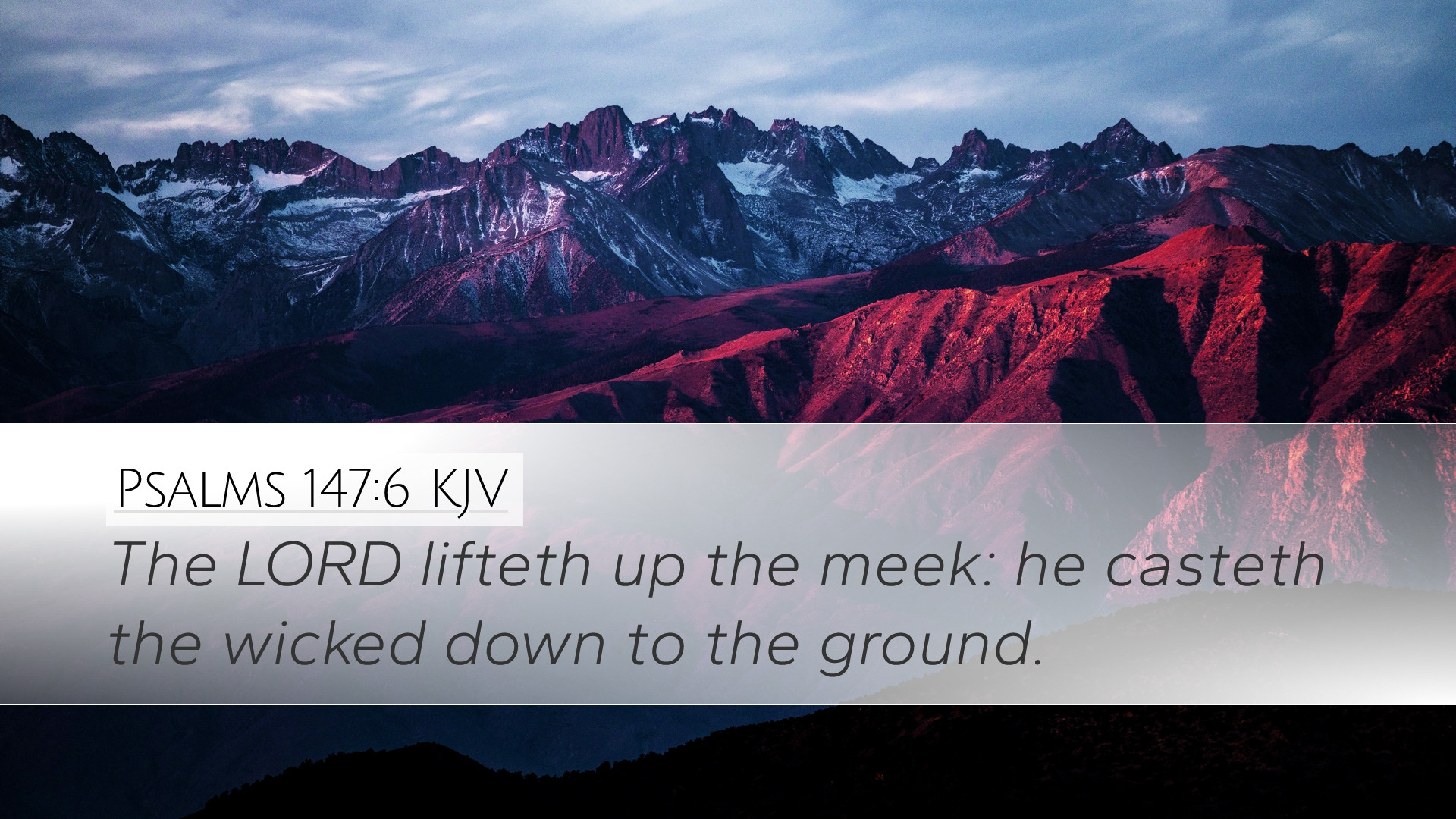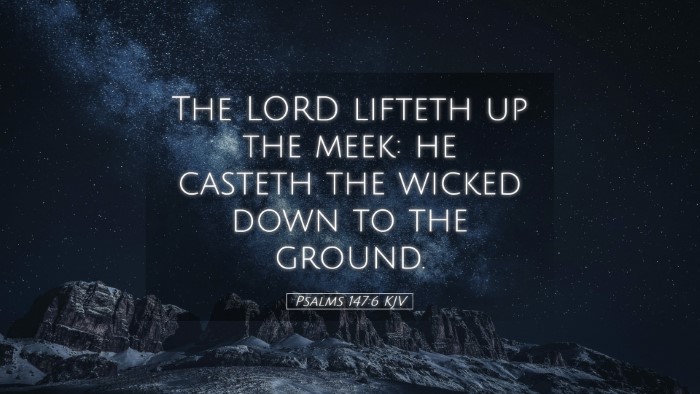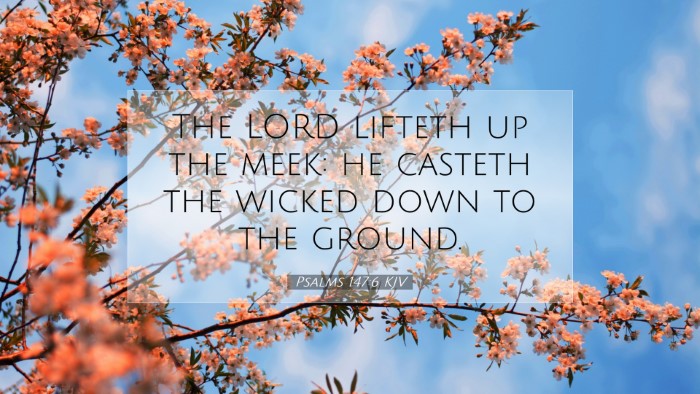Commentary on Psalms 147:6
Psalms 147:6 states: "The LORD lifteth up the meek: he casteth the wicked down to the ground." This verse succinctly encapsulates a significant theological principle concerning God's character and His governance of the world.
Overview and Context
This psalm is a hymn celebrating God's greatness and His care for His creation, particularly focusing on Israel. The psalmist rejoices in the restoration of Jerusalem and witnesses the majesty and mercy of God. The mention of the meek and the wicked in this verse highlights two contrasting human attitudes towards God and the resulting divine responses.
The Meek: Recipients of Divine Favor
The term "meek" refers to those who are humble, gentle, and submissive to God's will. Matthew Henry notes that meekness is a quality that aligns closely with a dependency on God. Such individuals recognize their limitations and are aware of their need for divine help.
- Humility Before God: Albert Barnes emphasizes that the meek are not only humble in heart but also willing to submit to God's authority, showing a willingness to live in accordance with His will.
- Hope and Encouragement: Adam Clarke observes that the meek find encouragement in their status, suggesting that the Lord intentionally elevates these individuals to positions of honor and respect within His kingdom.
The Wicked: Subject to Divine Judgment
In contrast, the "wicked" refer to those who oppose God, rebelling against His commands. Matthew Henry argues that there is a clear distinction between the fates of the meek and the wicked. The latter find themselves cast down because they resist God's order and authority.
- God's Justice: Albert Barnes stresses that God's judgment upon the wicked is a fundamental principle depicted throughout Scripture. Their downfall serves as a testament to divine justice.
- Temporal and Eternal Consequences: Adam Clarke elaborates on the idea that the oppressors of the meek, those who thrive in wickedness, may experience temporary success but ultimately face divine retribution.
Theological Implications
The dual imagery of lifting the meek and casting down the wicked presents profound theological implications. This dichotomy demonstrates God's sovereignty, His moral governance, and the moral order He establishes in the universe.
- God’s Sovereignty: The verse affirms that God actively manages the affairs of humanity, rewarding humility and faithfulness while punishing pride and rebellion.
- Encouragement for Believers: This psalm serves as an encouragement to those who may feel marginalized or oppressed. The promise that they will be lifted up by the Lord is a source of hope, asserting that their status is recognized by God.
Application for Modern Believers
For pastors, students, and theologians, this verse offers practical applications:
- Promote Meekness: Encourage congregations to cultivate humility and dependency on God in their day-to-day lives.
- Teach on Divine Justice: Emphasize God’s justice in both historical context and modern application—reminding believers that God sees the plight of the oppressed and acts on their behalf.
- Hope in God’s Plan: Provide hope to those suffering injustice, reassuring them that their ultimate vindication rests in God's hands.
Conclusion
Psalms 147:6 provides a powerful biblical framework for understanding God's relationship with humanity. The text not only affirms the value of meekness but also portrays a clear trajectory of divine justice. By lifting the meek and casting down the wicked, God establishes an eternal principle of His kingdom—a principle that resonates through the ages.
In light of this, may believers strive for meekness, recognizing that it is through humility that they may experience the fullness of God’s grace and favor.


